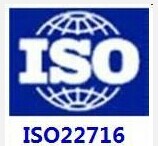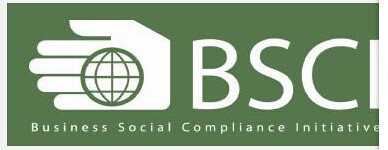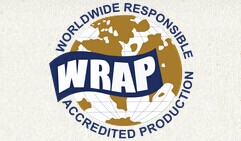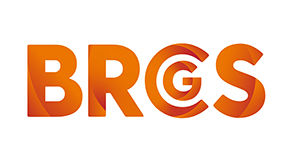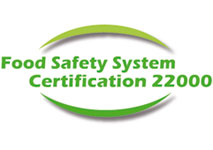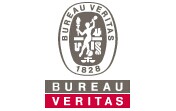ISO22716(Time:2010-03-23 11:07:00)
Terms and definitions
For the purposes of this document, the following terms and definitions apply.2.1 acceptance criteria
numerical limits, ranges, or other suitable measures for acceptance of test results
2.2 audit
systematic and independent examination to determine whether quality activities and related results comply with planned arrangements and whether these arrangements are implemented effectively and are suitable for achieving objectives
2.3 batch
defined quantity of raw material, packaging material or product issued from one process or series of processes so that it could be expected to be homogeneous
2.4 batch number
distinctive combination of numbers, letters and/or symbols, which specifically identifies a batch
2.5 bulk product
any product which has completed manufacturing stages up to, but not including, final packaging
2.6 calibration
set of operations that establish, under specified conditions, the relationship between values indicated by a measuring instrument or measuring system, or values represented by a material measure, and the corresponding known values of a reference standard
2.7 change control
internal organization and responsibilities relative to any planned change of one or several activities covered by the Good Manufacturing Practices in order to ensure that all the manufactured, packaged, controlled and stored products correspond to the defined acceptance criteria
2.8 cleaning
all operations that ensure a level of cleanliness and appearance, consisting of separating and eliminating generally visible dirt from a surface by means of the following combined factors, in variable proportions, such as chemical action, mechanical action, temperature, duration of application
2.9 complaint
external information claiming a product does not meet defined acceptance criteria
2.10 contamination
occurrence of any undesirable matter such as chemical, physical and/or microbiological matter in the product
2.11 consumables
materials such as cleaning agents and lubricants that are used up during cleaning, sanitization or maintenance operations
2.12 contract acceptor
person, company or external organization carrying out an operation on behalf of another person, company or organization
2.13 control
verification that acceptance criteria are met
2.14 deviation
internal organization and responsibilities relative to the authorization to deviate from specified requirements due to a planned or unplanned and, in any case, temporary situation concerning one or several activities covered by the Good Manufacturing Practices
2.15 finished product
cosmetic product that has undergone all stages of production, including packaging in its final container, for shipment
2.16 in-process control
controls performed during production in order to monitor and, if appropriate, to adjust the process to ensure that the product meets the defined acceptance criteria
2.17 internal audit
systematic and independent examination made by competent personnel inside the company, the aim of which is to determine whether activities covered by these guidelines and related results comply with planned arrangements and whether these arrangements are implemented effectively and are suitable for achieving objectives
2.18 major equipment
equipment specified in production and laboratory documents which is considered essential to the process
2.19 maintenance
any periodic or unplanned support and verification operations designed to keep premises and equipment in proper working condition
2.20 manufacturing operation
set of operations from the weighing of raw materials to the making of the bulk product
2.21 out-of-specification
examination, measurement or test result that does not comply with defined acceptance criteria
2.22 packaging operation
all packaging steps including filling and labelling, which a bulk product has to undergo in order to become a finished product
2.23 packaging material
any material employed in the packaging of a cosmetic product, excluding any outer packaging used for transportation
Note 1 to entry: Packaging materials are referred to as primary or secondary according to whether or not they are intended to be in direct contact with the product.
2.24 plant
location for production of cosmetic products
2.25 premises
physical location, buildings and supporting structures used to conduct receipt, storage, manufacturing, packaging, control and shipment of product, raw materials and packaging materials
2.26 production
manufacturing and packaging operations
2.27 quality assurance
all those planned and systematic activities necessary to provide confidence that a product satisfies given acceptance criteria
2.28 raw material
any substance going into or involved in the manufacturing of a bulk product
2.29 recall
decision made by a company to call back a product batch that has been put on the market
2.30 reprocessing
re-treatment of all or part of a batch of finished product or bulk product of an unacceptable quality from a defined stage of production so that its quality may be rendered acceptable by one or more additional operations
2.31 return
sending finished cosmetic products which may or may not present a quality defect back to the plant
2.32 sample
one or more representative elements selected from a set to obtain information about that set
2.33 sampling
set of operations relating to the taking and preparation of samples
2.34 sanitization
operation, used to reduce undesirable micro-organisms on inert contaminated surfaces depending on the objectives set
Note 1 to entry: It is the action of reducing generally invisible contaminants from a surface.
2.35 shipment
set of operations relative to the preparation of an order and its putting in a transport vehicle
2.36 waste
any residue of a production operation, transformation or use, any substance, material, product that its holder intends for disposal
If you want to know more about ISO 22716,please click following links or contact us
you can also browse ISO 22716 website:http://www.iso.org/iso/home.html
